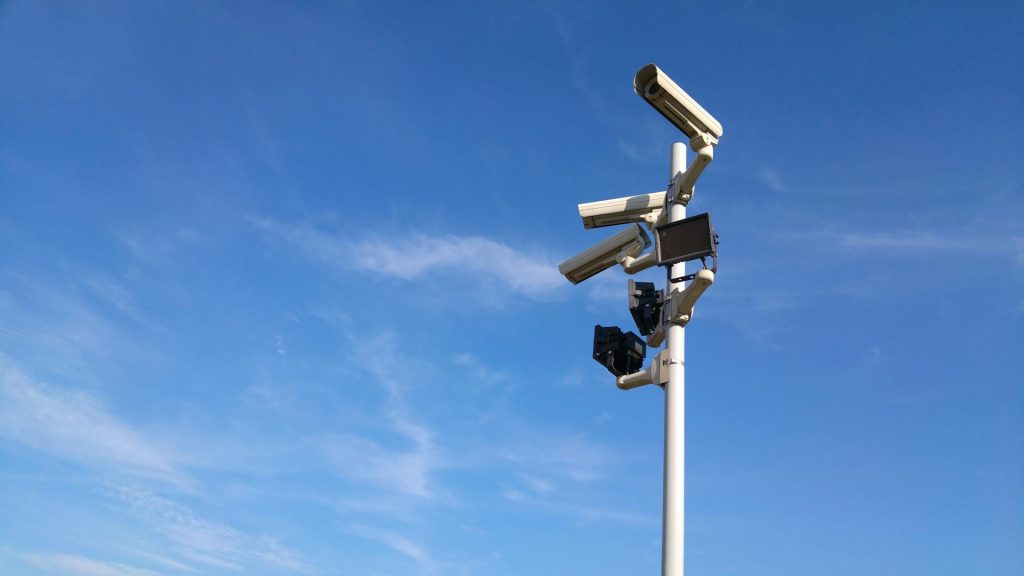Table of Contents
In an increasingly interconnected world, surveillance has become a ubiquitous part of daily life. Governments, corporations, and even individuals engage in various forms of surveillance to monitor behavior, gather data, and enhance security. While surveillance can serve legitimate purposes, such as preventing crime or terrorism, it also raises significant ethical concerns. The balance between security and privacy, the potential for abuse of power, and the impact on individual freedoms are at the heart of the ethical debate surrounding surveillance.

The Purpose and Justification of Surveillance
Surveillance is often justified on the grounds of national security, public safety, and crime prevention. Governments argue that monitoring communications, tracking movements, and collecting data on citizens can help thwart terrorist plots, solve crimes, and protect public order. In the digital age, surveillance has expanded to include online activities, with law enforcement agencies and intelligence organizations monitoring internet traffic, social media, and electronic communications.
Corporations also engage in surveillance, primarily for commercial purposes. Companies track consumer behavior, gather data on purchasing habits, and monitor employee productivity. This data is often used to enhance customer experiences, improve products, and increase efficiency. However, the collection and use of personal data by private entities raise concerns about consent, transparency, and the potential for exploitation.
Ethical Concerns: Privacy and Consent
One of the most significant ethical issues related to surveillance is the impact on privacy. Privacy is a fundamental human right, enshrined in various international declarations and legal frameworks. It is essential for personal autonomy, dignity, and freedom of expression. Surveillance, particularly when conducted without the knowledge or consent of the individuals being monitored, can undermine this right.
The concept of consent is central to the ethics of surveillance. Individuals should have the right to know when they are being surveilled, who is conducting the surveillance, and for what purpose. In many cases, however, surveillance is conducted covertly, without the explicit consent of those being monitored. This raises ethical questions about the legitimacy of such practices and the potential for abuse.
The use of mass surveillance, where entire populations are monitored indiscriminately, is particularly controversial. Critics argue that mass surveillance violates the principle of proportionality, which dictates that the scope of surveillance should be limited to what is necessary and relevant for a specific purpose. When governments or corporations collect vast amounts of data on individuals without clear justification, it can lead to a chilling effect on free speech and other fundamental rights.

The Risk of Abuse and the Erosion of Trust
Another ethical concern is the potential for surveillance to be used as a tool of oppression and control. History provides numerous examples of governments using surveillance to suppress dissent, target political opponents, and discriminate against minority groups. In authoritarian regimes, surveillance is often employed to maintain power and silence opposition, leading to widespread human rights abuses.
Even in democratic societies, there is a risk that surveillance could be misused by those in power. The accumulation of vast amounts of personal data by governments and corporations creates the potential for misuse, whether through unauthorized access, data breaches, or the exploitation of information for political or financial gain. This potential for abuse undermines trust in institutions and can lead to a sense of vulnerability and powerlessness among citizens.
The erosion of trust extends beyond the relationship between individuals and the state. As surveillance becomes more pervasive, people may become suspicious of one another, leading to a breakdown in social cohesion. In workplaces, for example, excessive monitoring of employees can create a culture of mistrust and inhibit creativity and collaboration. In communities, the knowledge that one is being watched can lead to self-censorship and a reluctance to engage in public discourse.
Balancing Security and Privacy: The Path Forward
The ethical challenges posed by surveillance require a careful balancing of security and privacy. While surveillance can play a legitimate role in protecting public safety and national security, it must be conducted in a manner that respects individual rights and freedoms. Striking this balance involves implementing robust legal and ethical frameworks that govern the use of surveillance technologies.
Transparency and accountability are key components of an ethical approach to surveillance. Governments and corporations must be transparent about their surveillance practices, providing clear information about what data is being collected, how it is being used, and who has access to it. Individuals should have the right to challenge surveillance practices they believe to be unjust or invasive, and there should be mechanisms in place to hold those responsible for unethical surveillance accountable.
Another important consideration is the principle of proportionality. Surveillance should be limited to what is necessary to achieve a legitimate goal, and the scope of surveillance should be as narrow as possible. For example, targeted surveillance, where specific individuals or groups are monitored based on credible evidence, is generally considered more ethically justifiable than mass surveillance.
Technological safeguards can also play a role in protecting privacy. Encryption, anonymization, and other privacy-enhancing technologies can help mitigate the risks associated with surveillance. By minimizing the amount of personal data that is collected and stored, these technologies can reduce the potential for abuse and protect individual privacy.

Conclusion
The ethics of surveillance is a complex and evolving issue that reflects broader societal tensions between security, privacy, and power. As surveillance technologies continue to advance, the need for ethical guidelines and legal protections becomes increasingly urgent. By prioritizing transparency, accountability, and proportionality, society can navigate the challenges posed by surveillance while safeguarding the fundamental rights and freedoms that are essential to a just and democratic society. The ethical debate surrounding surveillance is not just about the technologies themselves but about the values we choose to uphold as a global community.
